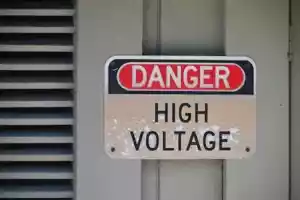What comes to mind when you think about power? Maybe you think about superpowers or electricity. What about powerful leaders? Do you have generally positive or negative connotations?
We have often seen the abuse of power, or what happens when powerful people don’t have accountability. Our government here in the United States is built around having checks and balances for that very reason.

But power isn’t bad. In fact, it’s necessary. Have you ever been in a group project where there are “too many cooks in the kitchen,” so to speak? So many people have a say that eventually some people have to concede and others make the final decision. Even in that scenario where there is no defined authority structure, power still exists. Because power is influence. Some people in that group influenced others to change their mind or go in a different direction.
Power as Influence
At its core, power is the ability to influence others. We will discuss next week about where that ability comes from, but it’s enough to say for now that the two terms can be used interchangeably. When you influence someone, it means that they are changed by your presence in their life.
Here at the Crossroad we define leadership as “influencing others to get There,” but we could also define leadership as “having the power to help others get There.”
It’s important not to look at power for the sake of power or influence for the sake of influence, but at what end your efforts are aimed at. Power at the hands of a leader, especially a servant leader, should be aimed at helping others get There. This can both be a shared organizational There or a personal There in which the person with influence helps the other party reach their full potential.
When Power Gets Abused
We get abuse of power when an individual is pursuing a self-serving There or a ME There. We have defined power as influence, but it can also be used as a means of control. Those using it as influence recognize the three things they can control: 1) their actions, 2) their perspective, and 3) whom they trust. Notice what is not on that list is “other people’s actions.”
Like we talked about last week, we can place boundaries in our own lives and in the lives of those we have power to influence that help them make choices that are both lawful and wise. But those who view power as control will try to coerce and manipulate others into making the choices they want them to make. The outcome of this attempt is contingent on who they are trying to control. This scenario could end in either the removal of the authority of the abuser or continued control over the abused. This depends on whether or not that individual has an awareness that they’re being manipulated or the courage to push back.
But even though we can name countless examples from history of the abuse of power, we should not be afraid of it in and of itself. It is a tool. And like any tool, it can be used properly or it can be misused. Knowing where you want to go and influencing others to catch the vision and go on the journey with you is the perfect place to start using power correctly.
Gracie McBride is the Content and Systems Management Coordinator for The Crossroad.




